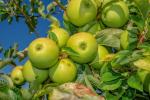
LIFE Project: Divide and Conquer: Closing the Loop on Water, Nutrient, and Resource Management for Irrigation Activities.
- Type Project
- Status Filled
- Execution 2020 -2024
- Assigned Budget 1.655.288,00 €
- Scope Europeo
- Autonomous community Cataluña
- Main source of financing LIFE
- Project website Web del proyecto
LIFE CONQUER demonstrates an innovative water reclamation process based on smart nanofiltration (NF), which will split salinity and nitrates to produce nutrient-rich reclaimed water. This will be suitable for reuse in irrigation.
Water scarcity is no longer limited to a few European regions, but is now an EU-wide problem, with a third of the EU territory experiencing water stress.
Water reuse has proven to be the most sustainable alternative to using freshwater sources in terms of cost and environmental impact. However, wastewater salinity is a challenge in wastewater treatment plants (WWTPs) and wastewater reclamation plants (WRPs) where collectors receive industrial brine, agricultural runoff, and/or marine intrusion. Conventional WWTPs or WRPs are not designed to remove salinity, which becomes a limiting parameter for water quality in water reuse.
- Demonstrate the use of monoselective reverse electrodialysis (MS-EDR) and three-dimensional granular anodic electrochlorination (3D-EC) to transform dissolved salts removed by concentration in brines into valuable by-products (e.g., sodium hypochlorite) required in industrial processes.
- Implement the circular economy in the wastewater sector to meet the requirements of the EU Water Framework Directive and comply with water reuse regulations.
- The volume of reclaimed water for irrigation of parks and landscapes in the city of Murcia will amount to 500,000 m3/year at the end of the project, representing 29% of the total water demand (1,750,000 m3/year) for non-potable municipal uses in the city, currently covered by 100% of the use of freshwater resources (55% groundwater and 45% drinking water; 950,000 m3/year and 800,000 m3/year, respectively).
- A 27% reduction in the total water footprint of the urban irrigation system in the city of Murcia has been achieved, thanks to the use of reclaimed water instead of drinking water for irrigation, representing a 95% reduction in the water footprint.
- A 37% reduction (425,000 kWh/year) in total energy consumption in the urban irrigation system of the city of Murcia was achieved by replacing 500,000 m3/year of drinking water (1.30 kWh/m3) with reclaimed water (0.45 kWh/m3). Drinking water (which covers 45% of current water demand) is produced by extracting 23% of the water from the Segura River basin (0.60 kWh/m3) and importing 77% from the Tajo-Segura water transport system (1.50 kWh/m3). Consequently, the associated carbon footprint reduction amounts to 136 tn of CO2 equivalent/year.
- Brine recovery and subsequent on-site production of 26 tons of sodium hypochlorite (NaOCl) per year for use at nearby EMUASA facilities (self-consumption). This will result in a 19% reduction in total NaOCl consumption (139 tons of NaOCl per year) at EMUASA facilities (15 plants).
- Reducing the potential for eutrophication by preventing the discharge of 1.3 tons of nitrogen equivalent per year into natural water bodies through recycling it for irrigation in Murcia's parks.
- Coordinator/entity name: Sonia Matencio Lloberas
Postal address: Carretera d'Esplugues 75, 08940, Cornell de Llobregat
- Centro Tecnológico del Agua
- AQUATEC(AQUATEC, PROYECTOS PARA EL SECTOR DEL AGUA, S.A.U.)
- EMUASA(EMPRESA MUNICIPAL DE AGUAS Y SANEAMIENTO DE MURCIA, S.A)
- Cetaqua, Aquambiente Circular Economy Solutions S.L.U







